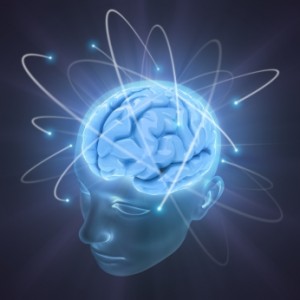 Many years ago I saw a program on the Discovery Channel. In the show several types of “geniuses” were collected: a physicist, mathematician, a spelling star, a writer, and others. All participating geniuses took a traditional IQ test, for which the physicist scored highest. But the IQ test we all know–logic puzzles and mathematics and geometry–tests to the physicists natural strengths and experience. While the other participants scored lower on that test, they scored much higher in tests measuring other human capabilities. In other words, genius is relative. And a variety of tests can identify different types of genius.
Many years ago I saw a program on the Discovery Channel. In the show several types of “geniuses” were collected: a physicist, mathematician, a spelling star, a writer, and others. All participating geniuses took a traditional IQ test, for which the physicist scored highest. But the IQ test we all know–logic puzzles and mathematics and geometry–tests to the physicists natural strengths and experience. While the other participants scored lower on that test, they scored much higher in tests measuring other human capabilities. In other words, genius is relative. And a variety of tests can identify different types of genius.
Ever since I saw this show I have been fascinated with the idea of dimensions in intelligence. I remember seeing a demonstration of a special type of intelligence on display at the World Series of Poker (WSOP) in 2004. Before I played in the WSOP, I was often the best player in local games in San Jose, California. But at that table in Vegas I was one of the worst. And one of my opponents kept proving it to me. He repeatedly announced my intent before I said anything. (Incidentally, that was an excellent tactic to intimidate me.) While that unknown gentleman may very well have failed high school math, he was a savant with respect to human behavior.
I realized then that people’s real strengths are not obvious. Indeed, uncovering them can be incredibly difficult. We are accustomed to measuring intelligence with logic quizzes and breadth of vocabulary and wittiness. But how does this account for my erstwhile poker opponent? How do we measure behavior prediction based on minute changes in posture and facial expression? And how do we recognized those that quickly master new languages? Or can readily understand emotional state in a meaningful and empathetic way?
An article online that nicely summarizes these dimensions of intelligence claims there are nine dimensions:
- Naturalist Intelligence (Nature Smart)
- Musical Intelligence (Musical Smart)
- Logical-Mathematical Intelligence (Number/Reasoning Smart)
- Existential Intelligence
- Interpersonal Intelligence (People Smart)
- Bodily-Kinesthetic Intelligence (Body Smart)
- Linguistic Intelligence (Word Smart)
- Intra-personal Intelligence (Self Smart)
- Spatial Intelligence (Picture Smart)
Geniuses in some of these dimensions are obvious in common daily contexts. Logical/mathematical geniuses are quickly identified in schools. Kinesthetic geniuses become great athletes. But how do we tell is a high school failure is another Mozart? Would you know if a coworker on the verge of termination is a naturalist genius that could survive in the wilderness with only a knife and some dental floss?
Sadly, you would often never know you are talking to a genius in these dimensions. Nor would anyone else. The best we can do is keep an open mind when dealing with someone that thinks differently. Behind every person’s eyes lies the capacity to surprise and amaze.
Believe it or not, other people’s strengths is not what I wanted to write about today. Today I am thinking of this because of the incredible challenge learning Mandarin has presented me me. My language skills are underdeveloped. Both in English (this is not false modesty) and my lack of any substantive knowledge of a second language. My linguistic intelligence is terrible, which I see every day in comparison to my classmates.
I am the class idiot in my Mandarin courses. I think I am the only one that speaks only one language. Everyone else speaks at least two (shame us us, Americans) and a handful speak three or more languages. Those lucky souls are spending half as much time studying Chinese as I am but scoring twice as well. They are either linguistically more intelligent or specifically better trained. In either case, they make me feel stupid. Can I train myself and become smarter at languages? I do not just mean better at Mandarin but more adept at learning how to communicate.
We know we can get better at math by taking classes on the subject. We can improve our IQ scores similarly by buying books on brain teasers and practicing the problems therein. For each subject we practice we broaden our mind and possibly raise the score we would get on the category’s IQ test. As an added benefit, developing a new dimension helps us identify genius in that category.
If we can improve IQ test results with logic problems then I have to believe my exercises in Chinese may enhance my linguistic intelligence. And if that is true can I not improve other areas? I greatly crave a higher interpersonal intelligence as I continue life’s journey.
Stretching myself in a weak dimension must be good for my brain. Although the repeated failures may not so great for my ego. But in great challenge lies an opportunity to overcome. And clawing out of a pit of despair certainly builds equanimity that fortifies us for life’s later challenges. I am learning this again every day. Lesson by lesson. Test by test.
Speaking of which, time for me to get back to studying.

I just read an article by PsyBlog that by improving Bodily-Kinesthetic Intelligence, ie dancing, wrestling, juggling, can improve mental rotation skills!
Another incentive for people to develop other dimensions of intelligence to grow into a well-rounded intelligent being?
http://www.spring.org.uk/2013/07/the-mental-benefits-of-useless-skills-like-juggling.php#utm_source=feedburner&utm_medium=email&utm_campaign=Feed%3A+PsychologyBlog+%28PsyBlog%29